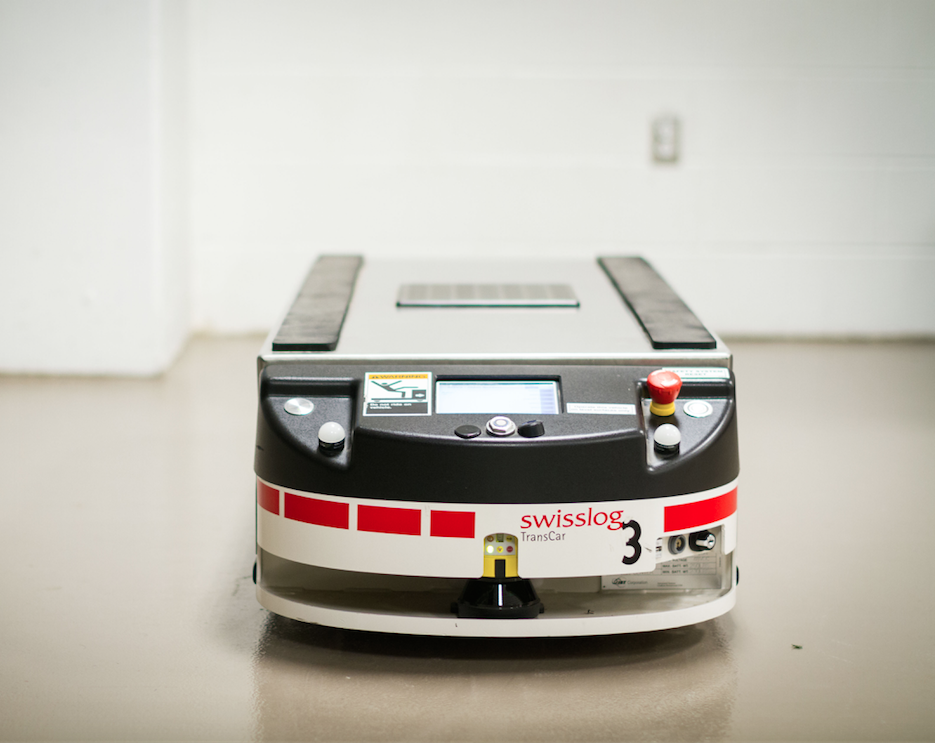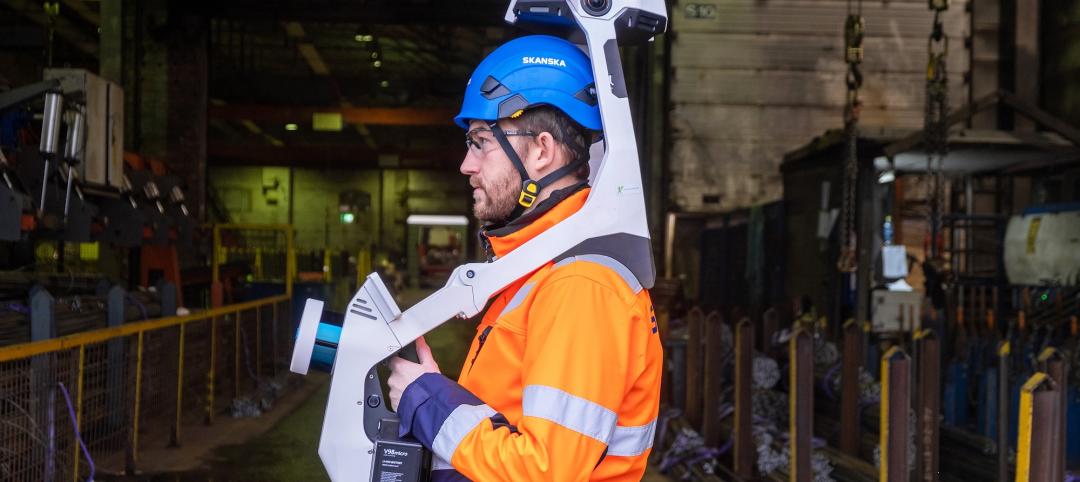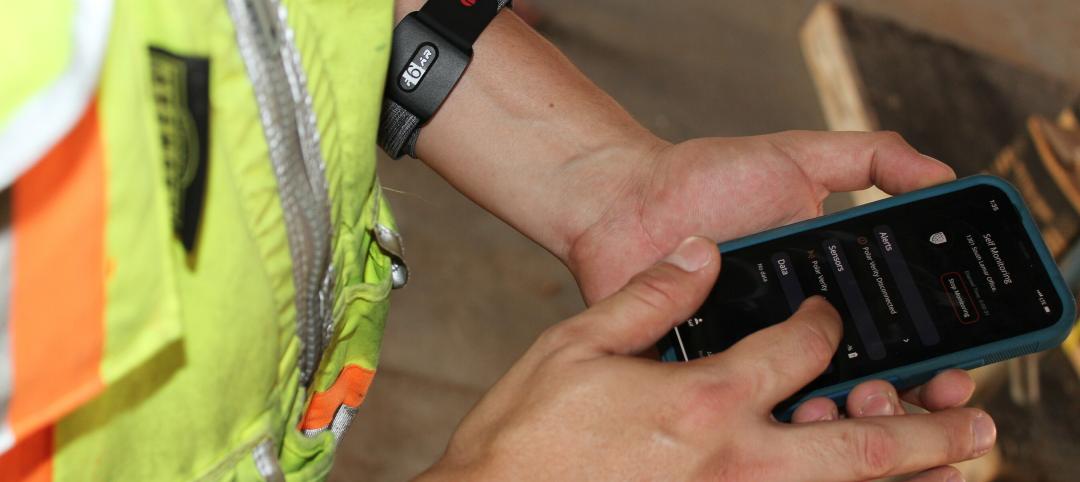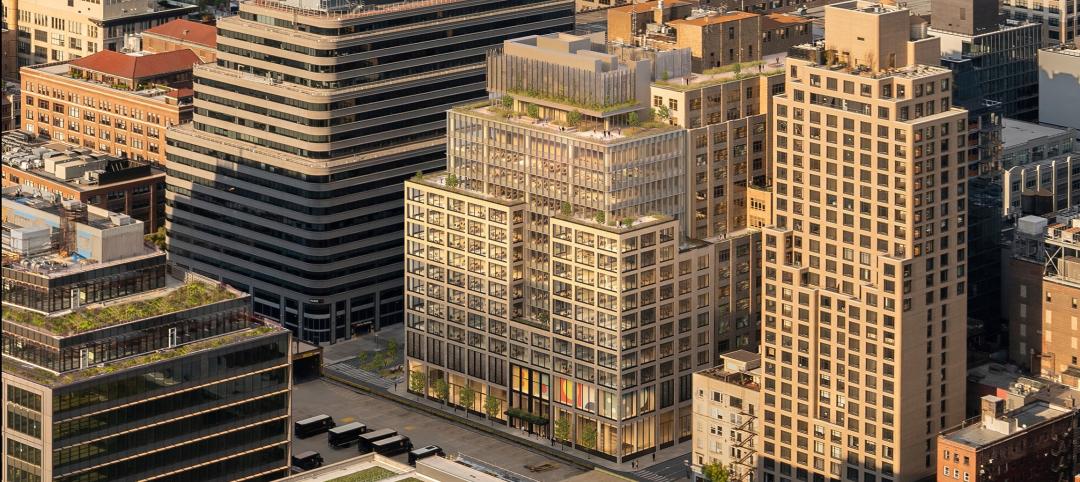Forget autonomous cars. How about self-guided robots in hospitals? It’s reality, at least for one healthcare institution: Humber River Hospital in northwest Toronto.
The new 1.8 million-sf hospital, which opened in October 2015, is loaded with high-tech gadgets—smart bed technology, robotics for surgical procedures, automated laboratory processing, bedside computer screens—to enhance patient care delivery and improve efficiency, accuracy, reliability, and safety.
Its coolest innovation is the use of automated guided vehicles (AGV) to distribute a host of items throughout the 13-story facility, including medical equipment, linens, and food. The hospital’s 10 AGVs move at the speed of an average person walking, and are programmed to call elevators, open doors, pick up loaded carts, and determine the best timing of each delivery based on their location, the priority level of the call, and the time of day. The robots use 238 custom-built carts to carry food and supplies throughout the hospital.
What happens when patients or staff members come into contact with an AGV? Just like in the movies, they are programmed to assimilate. The vehicles stop for people crossing in front of them. If a path is blocked, they will politely ask people to move (yes, they can speak) or send an alert to logistics to have someone clear the path. Digital signage notifies staff when an AGV is approaching in an adjacent hallway.
On the Building Team: Plenary Health and HCP Social Infrastructure (developers), HDR (architect, healthcare consultant), Johnson Controls (facilities management), and PCL (GC).
Related Stories
3D Printing | Sep 13, 2024
Swiss researchers develop robotic additive manufacturing method that uses earth-based materials—and not cement
Researchers at ETH Zurich, a university in Switzerland, have developed a new robotic additive manufacturing method to help make the construction industry more sustainable. Unlike concrete 3D printing, the process does not require cement.
Smart Buildings | Jul 25, 2024
A Swiss startup devises an intelligent photovoltaic façade that tracks and moves with the sun
Zurich Soft Robotics says Solskin can reduce building energy consumption by up to 80% while producing up to 40% more electricity than comparable façade systems.
Great Solutions | Jul 23, 2024
41 Great Solutions for architects, engineers, and contractors
AI ChatBots, ambient computing, floating MRIs, low-carbon cement, sunshine on demand, next-generation top-down construction. These and 35 other innovations make up our 2024 Great Solutions Report, which highlights fresh ideas and innovations from leading architecture, engineering, and construction firms.
Building Technology | Jun 18, 2024
Could ‘smart’ building facades heat and cool buildings?
A promising research project looks at the possibilities for thermoelectric systems to thermally condition buildings, writes Mahsa Farid Mohajer, Sustainable Building Analyst with Stantec.
75 Top Building Products | Apr 22, 2024
Enter today! BD+C's 75 Top Building Products for 2024
BD+C editors are now accepting submissions for the annual 75 Top Building Products awards. The winners will be featured in the November/December 2024 issue of Building Design+Construction.
AEC Tech | Feb 20, 2024
AI for construction: What kind of tool can artificial intelligence become for AEC teams?
Avoiding the hype and gathering good data are half the battle toward making artificial intelligence tools useful for performing design, operational, and jobsite tasks.
Sustainability | Nov 1, 2023
Researchers create building air leakage detection system using a camera in real time
Researchers at the U.S. Department of Energy’s Oak Ridge National Laboratory have developed a system that uses a camera to detect air leakage from buildings in real time.
Resiliency | Aug 7, 2023
Creative ways cities are seeking to beat urban heat gain
As temperatures in many areas hit record highs this summer, cities around the world are turning to creative solutions to cope with the heat. Here are several creative ways cities are seeking to beat urban heat gain.
AEC Innovators | Jun 15, 2023
Rogers-O'Brien Construction pilots wearables to reduce heat-related injuries on jobsites
Rogers-O'Brien Construction (RO) has launched a pilot program utilizing SafeGuard, a safety-as-a-service platform for real-time health and safety risk assessment. Non-invasive wearables connected to SafeGuard continuously monitor personnel to prevent heat exhaustion on jobsites, reducing the risk of related injuries. RO is the first general contractor to pilot this program.
Office Buildings | May 15, 2023
Sixteen-story office tower will use 40% less energy than an average NYC office building
This month marks the completion of a new 16-story office tower that is being promoted as New York City’s most sustainable office structure. That boast is backed by an innovative HVAC system that features geothermal wells, dedicated outdoor air system (DOAS) units, radiant heating and cooling, and a sophisticated control system to ensure that the elements work optimally together.

















